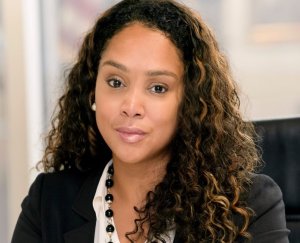
By Christopher Rugaber
AP Economics Writer
President Joe Biden will nominate three people for the Federal Reserve’s Board of Governors, including Sarah Bloom Raskin, a former Fed and Treasury official, for the top regulatory slot and Lisa Cook, who would be the first Black woman to serve on the Fed’s board.
Biden will also nominate Philip Jefferson, an economist, dean of faculty at Davidson College in North Carolina and a former Fed researcher, according to a person familiar with the decision Jan. 13 who was not authorized to speak on the record. The three nominees, who will have to be confirmed by the Senate, would fill out the Fed’s seven-member board.
The nominees would join the Fed at a particularly challenging time in which the central bank will undertake the delicate task of raising its benchmark interest rate to try to curb high inflation, without undercutting the recovery from the pandemic recession. On Jan. 12, the government reported that inflation reached a four-decade high in December. Inflation has become the economy’s most serious problem, a burden for millions of American households and a political threat to the Biden administration.
If confirmed, Cook, together with Jefferson, would be the fourth and fifth Black members of the Fed’s Board of Governors in its 108-year history. She has been a professor of economics and international relations at Michigan State since 2005. She was also a staff economist on the White House Council of Economic Advisers from 2011 to 2012 and was an adviser to the Biden-Harris transition team on the Fed and bank regulatory policy.
Cook is best-known for her research on the impact of racial violence on African-American invention and innovation. A 2013 paper she wrote concluded that racially motivated violence, by undermining the rule of law and threatening personal security, depressed patent awards to Black Americans by 15% annually between 1882 and 1940 — a loss that she found also held back the broader U.S. economy.
In an interview in October, Cook said that despite encouragement from prominent economists such as Milton Friedman and George Akerlof, she struggled for years to get the paper published. The major economics journals, she said, typically didn’t deal with “patents, or economic history, or anything that related to African-Americans.”
Cook has also been an advocate for Black women in economics, a profession that is notably less diverse than other social sciences. In 2019, she co-wrote a column in The New York Times that asserted that “economics is neither a welcoming nor a supportive profession for women” and “is especially antagonistic to Black women.”
To combat those problems, Cook has spent time mentoring younger Black women in economics, directing a summer program run by the American Economic Association, and won an award for mentoring in 2019.
Jefferson, who grew up in a working-class family in Washington, D.C., according to an interview with the American Economic Association, has focused his research on poverty and monetary policy. In a 2005 paper, he concluded that the benefits of a hot economy from the reduction in unemployment among lower-skilled workers outweighed the costs, including the risk that companies would adopt automation once labor grew scarce.
Help us Continue to tell OUR Story and join the AFRO family as a member – subscribers are now members! Join here!
The post Biden chooses 3 for Fed board, including first Black woman appeared first on AFRO American Newspapers .










